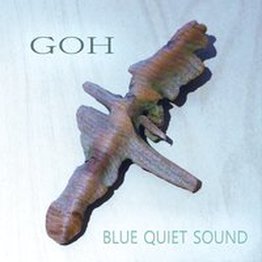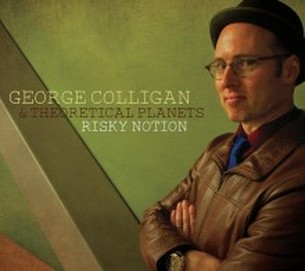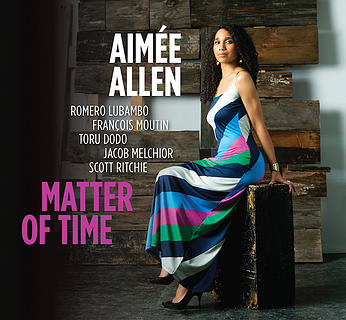
Now, on “Blue Quiet Sound” (Onigawa Records OR011), he is on his own again. He composes and performs and produces each track with the lone exception of Leonard Cohen’s “Hallelujah,” which he arranged.
The album opens with “Eveline.” The introductory playing puts one in mind of Neil Young’s “Only Love Can Break Your Heart.” There are recurring moments of that same effect. What is remarkable, however, is there is a bent note, that returns only three or four times in the piece, which has a distinctly Japanese feel to it. It stands out but oh-so-shyly. I don’t think that that phrasing would occur to a Westerner, not the way Goh does it. It is tender and it is sad. It is extraordinary.
Those are the details that must be attended when listening to Goh. He is subtle and delicate, even at his most powerful. Listen for the little things.
“First Thing” is a meditative piece of solo guitar and is a splendid set-up for the third track, Leonard Cohen’s “Hallelujah.” It brings a sense of quietude in preparation for Cohen’s sardonic piece, arranged by Goh.
It is Goh himself who provides the vocals on “Hallelujah.” His staggered cadence is emotive and the guitar is as plaintive as the lyrics require. There is also an undercurrent of strength and resolution that offsets the brokenness of the vocals.
The depths of despair of that song are left behind in “Gentle Heart.” An affirming, uplifting piece, this Goh composition serves to break the blues of what went before as well as preparing the way for the title track. Track listing is everything on Goh’s albums.
“Blue Quiet Sound” opens with a string squeak that is, at first, puzzling. The sonic imagery is clearly a seascape or harbor setting. That is underscored by the photo in the gatefold of the CD itself. The recurring squeaks are obviously mimicking seagulls and the entire piece widens onto a watery vista of sound, imagination and reflection.
Goh’s gentle touch is mindful of emotion and fragility.
“Coffee Jam” contains some of the album’s most interesting guitar work. The low end playing against the melodic line is delightful and is much like the various sounds and conversations found in a coffee shop anywhere in the world. It concludes with a sprightly jump that brings a smile. It is Goh’s most whimsical. His endings become highly anticipated events to even the casual listener.
It becomes clear, as the album progresses, that Goh’s personality is being represented. He is thoughtful, reflective, humorous, devoted and caring. Those qualities are defined and displayed with every note.
“Prelude to Believe 2015” is 55-second preamble that seems to offer a nod and wink to several musical styles, including a touch of bluegrass.
What comes next, however, is unmitigated magic. “Believe” first appeared on the Sharp Three’s 2013 album “Zero Cool.” On that trio version, Goh and brother Kai create melodic tapestries woven on the framework of Chuck van Haecke’s brilliant drumming. The groove is cool but the dominant theme is moving, even awe-inspiring.
Goh’s solo version, on the other hand, is equally fascinating and equally moving—captivating. It begins with a 33-second intro of percussive scratching and brushing which continues throughout the track but is covered by a melodic line that is exquisitely beautiful and warm. The lone guitar is highlighted by Goh’s uniquely bent notes.
It is near the 4:45 mark, however, that a theme emerges amidst effects and distractions that threaten to cloak and obscure the theme. That theme, though, does not surrender to the distraction. The 5-note motif takes on the role of a chant and keeps the music anchored. That motif may very well be the most singularly philosophical riff ever.
If that motif is the image of what is it to believe, it is a clear and determined quest for groundedness. It is not a statement of dogma regarding the object of believe as much as it is about the very act of believing. The conclusion is a scattering of that motif as a display of release to the universe. After all, to believe is to go beyond one’s own limited sphere of understanding. This track is just such a journey.
“Keep It Simple” moves from the meditative to the celebratory. It has a samba feel and is as unfettered as the title implores. The eddying of the melody follows its own counsel and brings forth one of the more delightful passages of the album.
“Hidden Garden” follows a path of Japanese musical modalism that is so well-suited for this solo guitar interlude. One can almost as easily hear the tugging sound of the shamisen as much as the acoustic guitar. It is contemplative and touching. “Hidden Gardens” adds yet another example of the multi-cultural and multi-dimensional playing and composing of Goh.
The album comes to a close with “Rain.” It is a gentle description of the slow, measured and, yes, multi-faceted rainfall that contains elements of falling but also of descent interrupted branches or rooftops. The sound of the rainfall, and the dripping that accompanies, collect into growing pools and rivulets and make this a simple but delicate piece worthy of daydreaming. The album thus ends gently, even wistfully, amidst the tones and tempos of nature itself.
In every recording, in every musical adventure, Goh Kurosawa is a guide on a journey to ourselves at our best. Like a roshi, he asks questions that outpace our answers and leave us with the complex solution of being still and just listening.
Purchase "Blue Quiet Sound" here at cdbaby: http://www.cdbaby.com/cd/goh1
Visit Goh's web page at: http://www.composelife.com/
Like Goh on Facebook here: https://www.facebook.com/gohkurosawalive?fref=ts
Also check out this: http://www.kruufm.com/node/19685








 RSS Feed
RSS Feed
